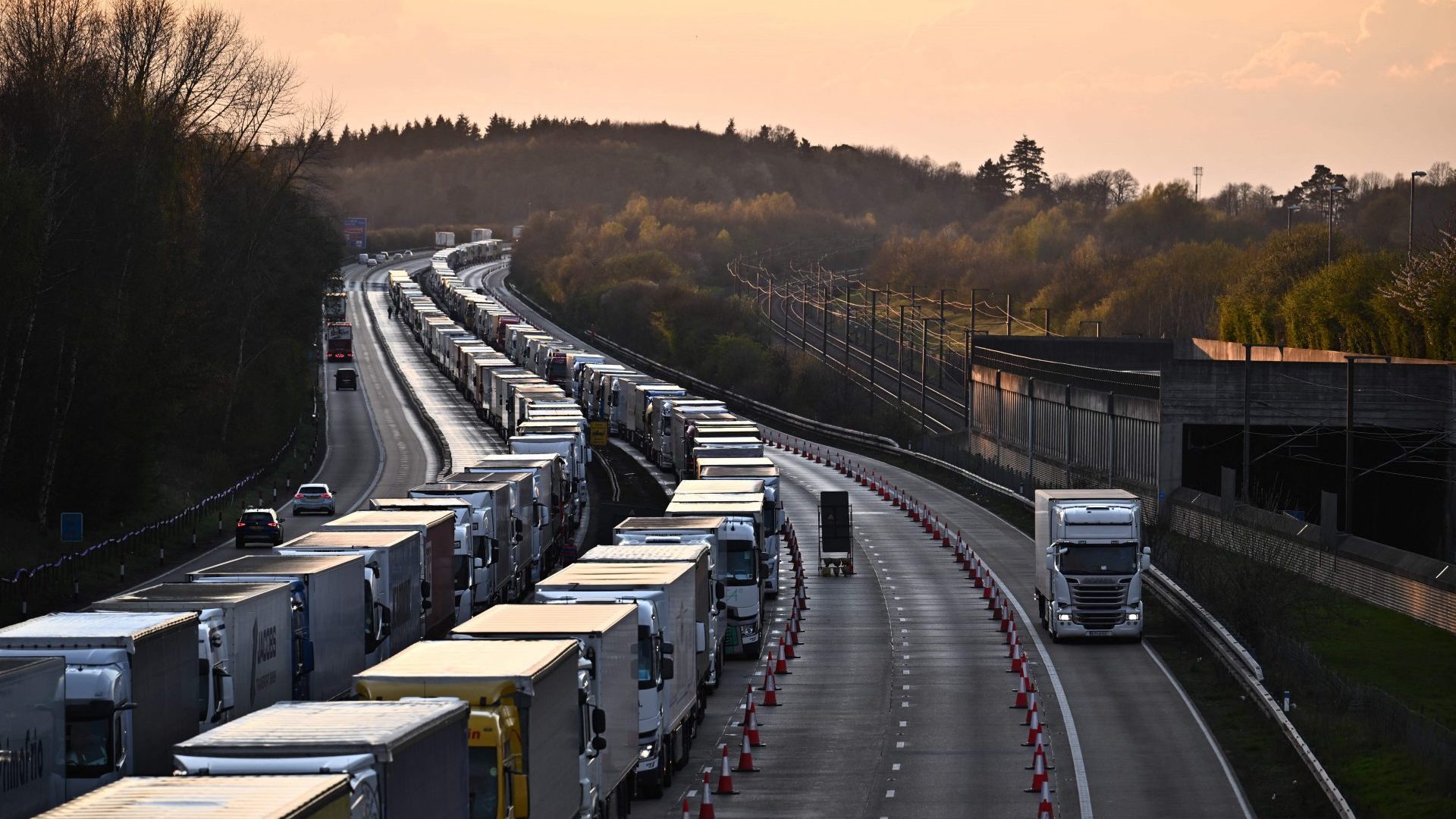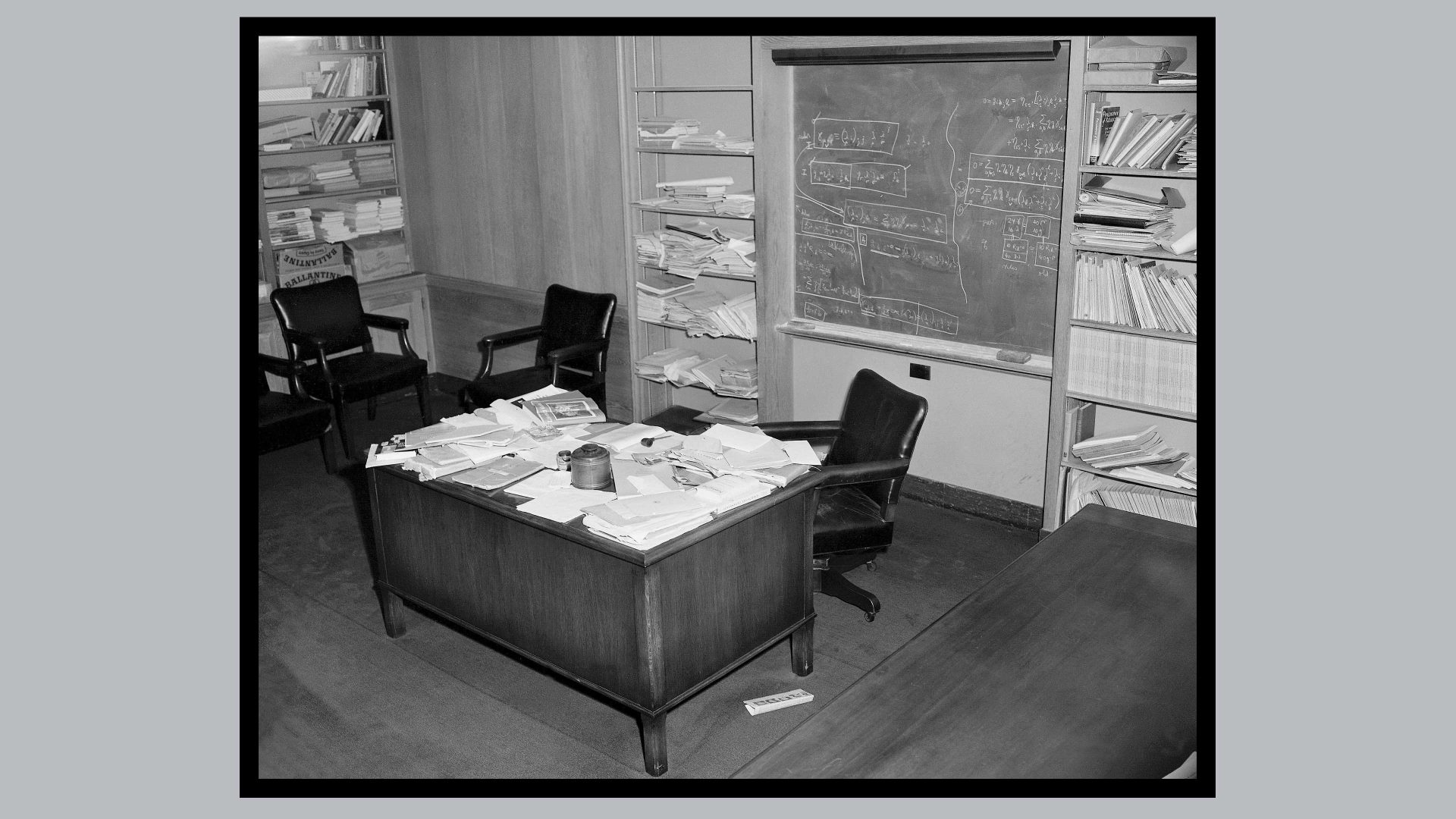‘Who in their right mind thinks it is OK to shut off motorway lanes to park lorries?” This was the reasonable question posed by one exasperated respondent to a recent consultation by the council in Maidstone.
People in that part of Kent, and much of the rest of the county, have become all too familiar with the effects of closing lanes on one of the country’s busiest motorways in order to accommodate lorries that would much prefer to be on the other side of the Channel. What were peaceful country lanes have become rat runs for vehicles escaping the jammed M20. Noise and pollution levels impact heavily on the quality of life. It is not much fun for the stranded lorry drivers either, given the lack of facilities available to them as they are corralled in their cabins.
Nevertheless, the scheme, known as Operation Brock, is soon to be implemented on a massive scale. According to Neil Baker, there loom “three years solid of Brock being in place”. He should know, since he is the Kent County Council cabinet member responsible for roads. “It’s going to be grim,” he warned a council meeting.
When bad weather prevents ferry crossings, or problems hit the Channel Tunnel, Brock is called into play to cope with the inevitable pile-up of lorries. But what Baker is looking forward to is not a storm or a strike, but the arrival of the EU’s new Exit and Entry System. Yes, this is just another result of Brexit, the gift that keeps on giving.
“Stronger and Smarter Borders in the EU”, proclaimed the document announcing the bloc’s plans for more effective border controls. That was published in April 2016, just a couple of months before the UK voted to put itself outside those borders. Now, after several delays, the new controls are scheduled for implementation in early October this year. It could have been a little earlier, but France successfully argued that it should not be until after the Paris Olympics, presumably because it foresaw the scheme causing potential difficulties for international visitors.
In Kent, the council certainly expects those difficulties. They will stem from the fact that the French officials charged with checking the credentials of travellers leaving the UK through the Channel ports will be required to provide biometric information. Taking fingerprints and doing facial identification takes time, particularly when cars have several passengers and coaches carry many more. Hence the predictions of lengthy delays while the checks are carried out.
It is not only Kent where problems will arise. The same checks will have to be carried out on people trying to board Eurostar from St Pancras station in London, significantly slowing down the boarding process. Those who had hoped to travel to Paris for New Year’s Eve and instead found themselves stranded with thousands of other disappointed ticket-holders may be wary of voluntarily committing to hours of queuing on the concourse.
It may be that Baker’s prediction is unduly gloomy and the new system will be bedded down relatively swiftly, but increased checks must amount to longer queues, and teething problems with new digital systems are not unknown. Hence his calls for Kent to be prepared to be in “a serious, serious mess”. Even Natalie Elphicke, the Brexit-supporting MP for Dover, has warned that, unless the government can act to ensure that the new system runs “seamlessly”, then “they risk big delays at the port. Travel chaos in Kent and real damage to the British economy”.
Those promised Brexit benefits to the economy continue to be elusive. The British Chambers of Commerce surveyed its members at the end of last year and found that 60% of firms trading with the EU were finding it more difficult to do so than even a year earlier.
Their efforts will not be made easier by long-promised checks on some imports, which, it seems, really are now about to come into force. From the end of January, imports of products of animal origin will have to be accompanied by health certificates, as will fruit and vegetables. At the end of April, physical checks will be introduced.
Supermarkets are already predicting that the new rules will lead to gaps in supplies. Smaller importers might simply decide that the extra hassle makes their business untenable and give up the struggle.
There are fears that many firms are unprepared for the new rules. In the immediate aftermath of the UK leaving the EU they expected changes but, three years on and after so many false alarms on when new requirements would come into force, they have been concentrating on trying to keep afloat and not preparing for what is now imminent.
The same is likely to be true of many holidaymakers who habitually journey to France or Spain. They will have no choice but to comply with the new border checks, but how many of them are aware that, for next year’s visit, they will need an ETIAS? The EU equivalent of the ESTA, which is required for travel to the US, the ETIAS is an electronic document that will be required for every member of the party.
The British have a reputation for being comfortable queuing. That is going to be put to the test.




